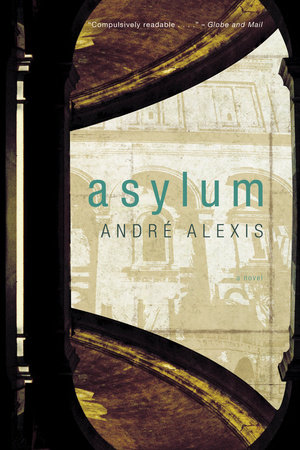READERS GUIDE
Questions and Topics for Discussion
1. Discuss the novel’s title, Asylum, and the many senses of the word’s meaning that can apply to various aspects of the book.
2. The book is narrated by Mark Ford, yet we are rarely aware of his presence, except at the beginning and the end. We also accept that there are many things that happen that Mark Ford cannot know about in detail. Discuss the structure of the book and what the author had in mind.
3. As Mark Ford looks back to his home in Ottawa, he thinks, “Time itself changes the city while our back is turned. And memory, as it perishes, takes with it the city I lived in, turning it to a place of imperfectly recollected monuments.” Talk about what the author reveals in the book about the process of memory and the meaning of home.
4. The human stories in the book are universal, yet the author situates them very specifically in Ottawa. Discuss the ways in which Ottawa, a character itself in the novel, is integral to the story.
5. At the end of the book, Stanley and Beatrice host a party before their departure, to which most of the characters are invited. “For a few hours it was as if a new city had sprung up around them, their city, one to which they actually belong.” Franklyn, a lonely isolated child, finds himself part of a community when he joins politics. Discuss other examples of how the ideas of community and/or being an outsider are used in the novel.
6. Three of the characters in the book lose a parent at an early age: Daniel, Franklyn, and Stanley. Discuss the resulting alienation between Franklyn and his father, Stanley, and his mother, Eleanor, and how Francois and his son deal with the death of Michelle.
7. Throughout the novel the author asks questions about God, morality, and the concept of sin. How do his various characters struggle with these questions?
8. Runstedt, Franklyn, Mary, and Edward are all faced with moral dilemmas. Discuss the nature of these.
9. The idea of the beautifully designed utopian prison, Alba, at last gives Franklyn his life’s purpose. Discuss the ways in which Franklyn’s character changes as he attempts to win favour for this massive project.
10. Discuss the ways in which the idea of Alba gives Franklyn his purpose only to destroy him. What could Franklyn have done differently that would have changed the course of his life? What do you think the author is trying to say?
11. Paul’s conviction that his wife Louise is having an affair gradually threatens to destroy him. Describe the irony of what Paul eventually discovers.
12. There are many different kinds of questions about forgiveness in the novel. What does it mean? Is it truly possible? How is it distinct from mercy? Discuss the ways in which these concepts play a part in the lives of the characters in the book and determine the course of their lives.
13. The concept of sin and the question of belief in God are recurring themes in this book. Does a belief in God necessitate a belief in sin? Discuss the role of religion and belief in the book as it directly or indirectly comes into play.
14. Near the end of the book, Franklyn feels Edward has betrayed him. What is Edward’s side of the story?
15. Betrayal — of someone else, of one’s self — occurs in many ways in the novel. Discuss examples of these occurrences. Do you think the author is saying that betrayal of one kind or another is something we are all destined for as human beings?
16. What is the relationship between ambition and gullibility in the novel?
17. Mary is caught between two worlds. One is in the inner workings of a political office; the other is in the Caribbean past of her family — her grandmother’s death and her sudden inheritance. Discuss what ethical positions Mary considers to help her navigate within these changing worlds.
18. Walter’s life and sexual conquests have remained a mystery to himself, bringing him to a crisis point. What discoveries does he make that enable him to find love in the end?
19. The author has chosen to write this novel in a formal and elegant style. How does this enhance the wit and wisdom of the story and the characters?
20. Asylum is a novel of ideas that brings in art, religion, philosophy, and classical references, all mixed with human truths. Discuss the breadth and originality of this novel and how it might be considered The Great Canadian Novel with a twist.






















